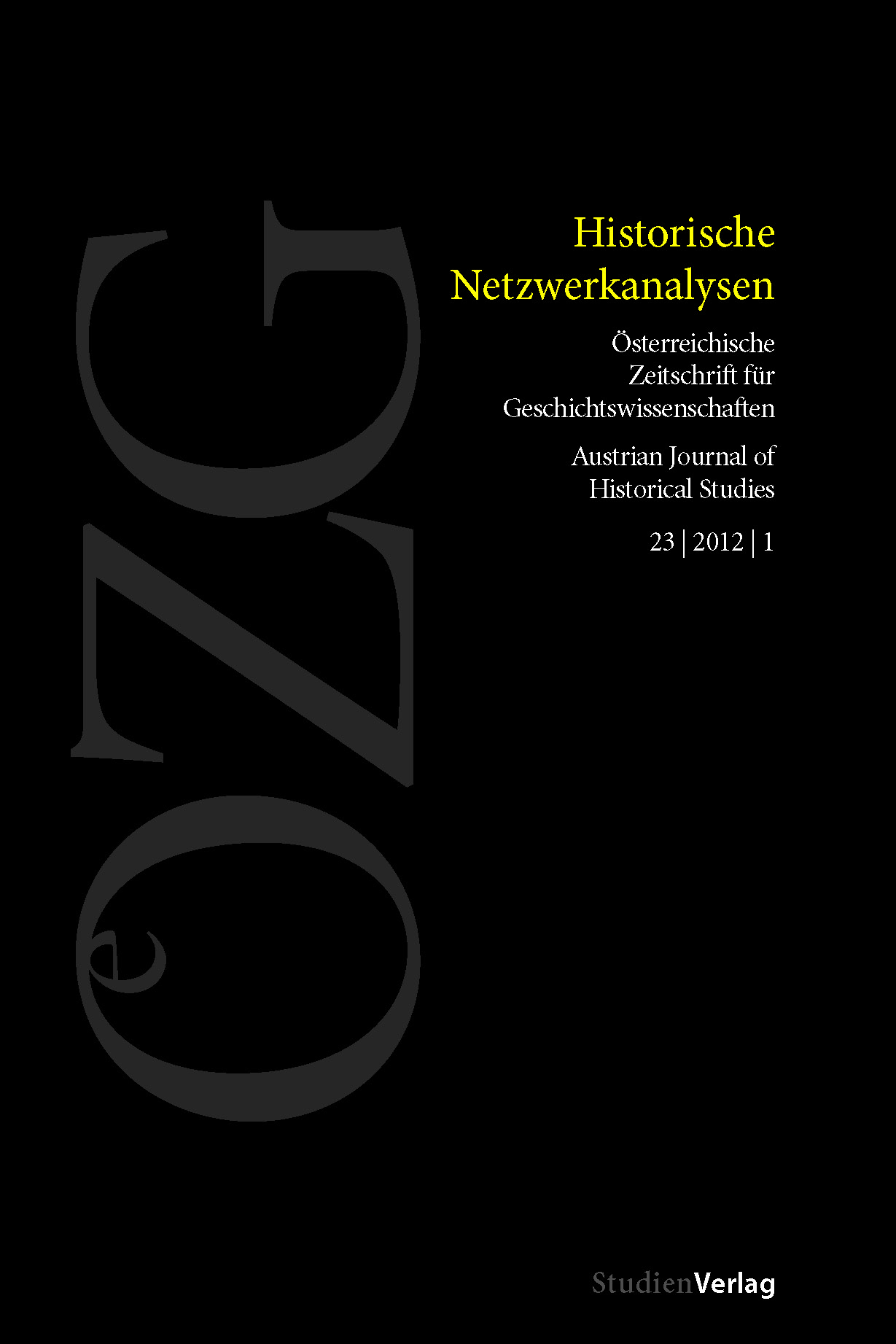In den Netzen des Entscheidens
Eine empirische Diffusionsstudie in theoretischer Absicht
DOI:
https://doi.org/10.25365/oezg-2012-23-1-5Schlagworte:
diffusion of innovation, social network analysis, correspondence analysis, discourse analysis, rural society, monetary relationsAbstract
The article explores the potential of Social Network Analysis (SNA) for the study of the diffusion of innovations in rural communities in Austria after its annexation to Germany in 1938. Multi-functional networks between family farms affected the diffusion of the application for the ‘debt relief and construction’ action of the Nazi state. The potential of SNA is enhanced when combined with methods deriving from field and discourse theory; thereby, additional drivers are highlighted: first, diffusion-boosting milieus based upon material, social and symbolic features of the farming families and, second, diffusion-boosting subject-positions of discourses mediated by the agrarian press and local functionaries. As a result, SNA turns out to be a valuable, but limited method for studying the diffusion of innovations; epistemological added value can be gained by combination of SNA with other quantitative and qualitative methods, therefore merging with the multi-relational character of everyday decision-making.


